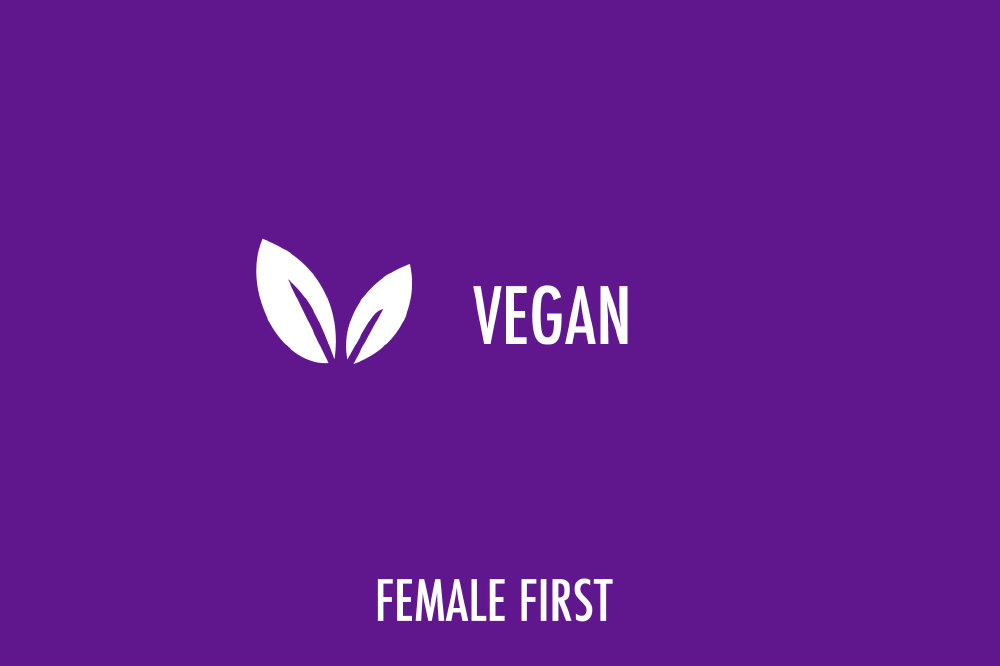It has become increasingly more common to follow a plant based diet, such as vegetarianism or veganism, with an estimated 12% of the UK adult population making the switch, and saving animals isn’t the only benefit. Plant based proteins tend to be lower in saturated fat and higher in fibre, promoting a balanced diet, which can also aid weight loss. Just swapping one meat meal for a vegetarian substitute once a week can show benefits - so there’s no need to go completely cold turkey! However, when making the move from animal to plant based protein, it can be hard to know what swaps to make and how to use them. Julian Gaine, Founder of Mealkitt, (www.mealkitt.com) the revolutionary portion control gadget, suggests 6 easy animal free swaps to incorporate into your diet, all of which are rich in protein, which both vegetarians and meat eaters alike can enjoy!

Vegan on Female First
The Animal Based Option: Beef Burger
The Plant Based Alternative: Lentil Burger
Switch the beef for pulses for the perfect week night meal. On average 100g of a beef burger contains a measly 15g of protein, however by trading it in you can up your protein intake to 26g per 100g of lentils.
The Animal Based Option: Lamb Based Curry
The Plant Based Alternative: Kidney Bean Curry
Although the protein content may be lower per 100g, with lamb having 24g and kidney beans having 9g, by switching to a vegetarian curry you’ll be cutting down on saturated fat content, whilst still being able to enjoy your favourite takeaway.
The Animal Based Option: Full English Breakfast
The Plant Based Alternative: A Smoothie Bowl with Spirulina
When actively changing your diet to cut out or limit animal products you are more likely to try and experience new foods, such as spirulina. This superfood contains a huge 57g of protein per 100g and is perfect to add into your favourite smoothie. Reinvent this standard drink by pouring it into a bowl and adding toppings such as granola and cut up fruit for a more exciting start to the day. This is a far better option as the average full English can pack up to 75g fat and over 2000mg of sodium before you’ve even left the house!
The Animal Based Option: Yoghurt
The Plant Based Alternative: Nuts
When you’re next feeling peckish ditch the yoghurt and grab a handful of nuts instead. Per 100g, on average yoghurt only has 4.5g of protein, whereas 100g of nuts can have between 15g (hazelnuts) to 22g (almonds) of protein.
The Animal Based Option: 100g Cow’s Milk
The Plant Based Option: 100g Hemp Seeds made into Hemp ‘Milk’
Non-dairy, nut/seed based milks have become increasingly popular in recent years as they are dairy and allergen friendly, as well as being suitable for vegetarians. Cow’s milk also contain hormones designed to help the growth of a calf which we as humans do not need. Avoid this and make your own plant based alternative by combining 100g of hemp seeds with 2 cups of water, blend and then strain for delicious, animal product free milk.
The Animal Based Option: Boiled Egg
The Plant Based Alternative: Quinoa
When trying to add protein to your salad why not ditch the egg, which has 12g protein per 100g and 11g fat, for 100g of boiled quinoa which contains 13g protein and only 5g fat. Quinoa is also a complex carbohydrate, which will help you feel fuller for longer.
Tagged in Vegan

